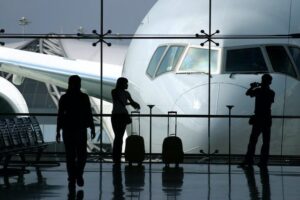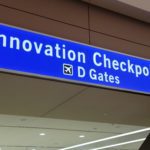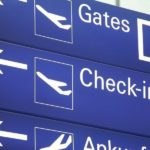
The Transportation Security Administration has issued a request for proposals from contractors interested in providing the organization with Next Generation Credential Authentication Technology (CAT2) systems and support services. Essentially, the TSA wants a CAT2 system that confirms and displays passenger information, including flight reservation information and pre-screening status, to TSA operators, and that uses facial recognition to match travelers to their photo ID.
It is an Indefinite Delivery-Indefinite Quantity contract with a potential value of up to $128 million over a period of seven years, during which the government may issue multiple orders. It’s a comprehensive contact, covering design, testing, implementation, management, and support.
With respect to the facial recognition component of the project, the contractor will have the option of using its own custom solution (subject to TSA cybersecurity standards), or using the Department of Homeland Security Enterprise Facial Recognition Technology.
The CAT2 system must also be capable of detecting counterfeit physical documents, including those produced using a range of simulated card substrates; and of detecting printed anomalies with respect to genuine ID templates. Those anomalies must be presented to an authorized user via a visual comparison. And the CAT2 solution must take the form of a standalone system, such as a kiosk, that can be deployed in a fixed location, such as a designated queueing area for passengers. That doesn’t mean it can’t be mounted on a movable apparatus, but the TSA specifies that it doesn’t want “a handheld solution.”
Also important: the solution must reduce physical contact between operators and passengers “to prevent the spread of disease”, the RFP states – a sign of the times, given ongoing concerns about the spread of COVID-19.
Looking to the future, the RFP notes that the contractor will need to “support multiple software development cycles”, and that the TSA “anticipates system enhancements to include a digital ID authentication capability (such as mobile driver’s license” in the future. Indeed, the TSA is already experimenting with support for Apple’s mobile ID solution, accepting it as a valid proof of identity for passengers at the Phoenix Sky Harbor International Airport in Arizona.
Prospective contractors have until 2:00pm EST on September 30 to submit their proposals.
Sources: SAM.gov, Homeland Security Today
–
August 30, 2022 – by Alex Perala







Follow Us